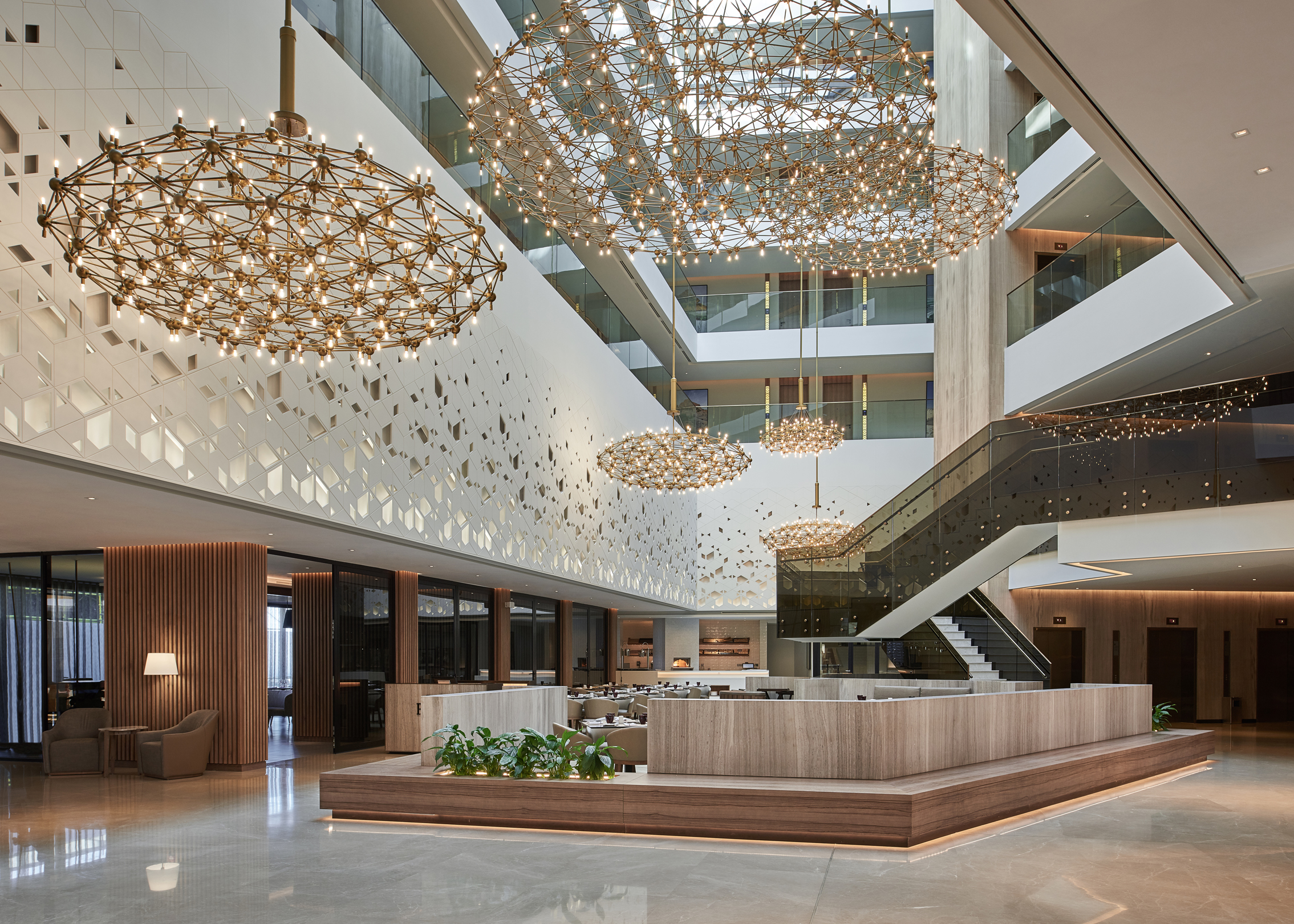
Awarded as the World’s Leading Emerging Luxury Hotel Brand in 2013, Shaza Hotels has been a name well-known in the Muslim Travel Market. Shaza Hotels was the first luxury, halal environmental brand in the world that celebrates the cultures of the Silk Route. Shaza is the luxurious hotel that gives you a five-star breath of fresh air but still staying true to their Middle Eastern roots. On the other hand, Mysk by Shaza is a new upscale brand from Shaza that caters specifically to Millennial travelers, offering value for money accommodation. Despite catering to a different target audience, Mysk by Shaza still holds on its Middle Eastern identity in the modern Arabian lifestyle.
Based in Dubai, Mr. Shaji Abu Salih overlooks the sales and marketing sector of all Shaza Hotels and Mysk by Shaza as the Head of Sales and Marketing of Shaza Hotels. We managed to have a talk with him about the growing Muslim Market Segment. This was what he has to say:
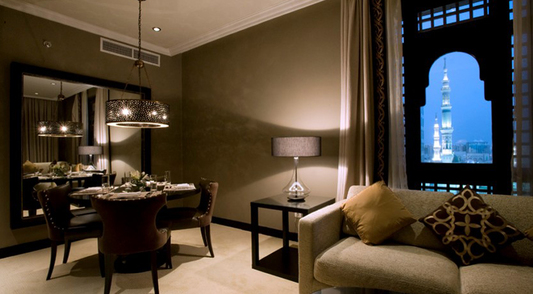
1. How did Shaza hotels come about targeting the Muslim Market Segment?
Shaji: Shaza was purely formed in 2007 targeting this niche market of Halal tourism. We found that there’s a great need for Halal Friendly hotels worldwide, and people weren’t taking initiatives to come up with these kind of investments, because there’s a lack of clarity about the Halal Spectrum itself. I mean, it’s a huge spectrum. The word “halal” is being interpreted in different ways, in different places, by different Muslims, so it’s 1.7 billion Muslims interpreting Halal in different ways.
So we decided, when we look at the pure statistics - in marketing jargon - a huge, blue ocean lies there. We found out that the large number lies in the silent travellers in our hotels who are Muslims, but they don’t have a chance to choose a hotel based on their needs of faith or culture.
And it’s not a huge difference, [as if] you need to invest a lot of money for that - [just] small, changes and adaptations to these nice maret needs, [and] you can attract a large number of those Muslim travellers, and that’s how Shaza formed in 2007.
2. How has doing business in the Muslim Market Segment been so far?
Shaji: Right now in our seventh year, we’ve opened our second brand, because we saw that there’s a huge demand from the Millennial travellers! The well-travelled young travellers from Asia, from Europe, and the Middle East…Speaking about the Middle East, 3% of the global travellers are from the Gulf countries, the GCC we call it, but they contribute about 30% of the global travel spent. It’s a huge market, and Europe takes a huge benefit out of it.
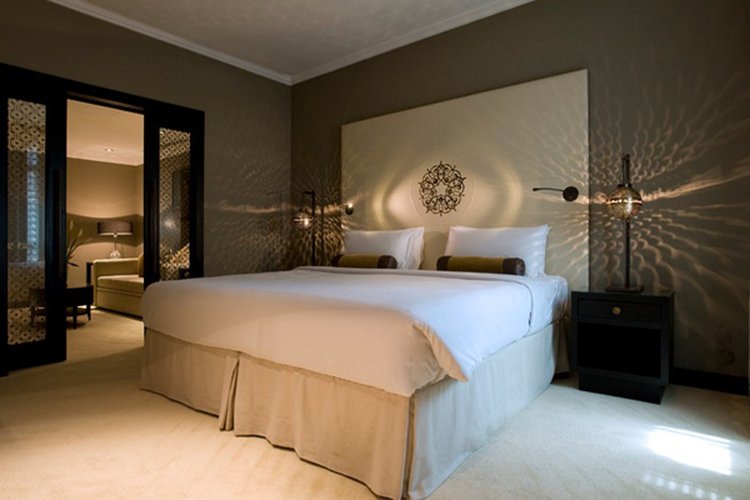
3. So this second brand is targeting the Muslim Millennials. Can you tell us more about this demographic?
Shaji: Muslim millennial travellers don’t want to compromise on the quality of their life like any other demographic, or people from other religions and other parts of the world. They want all their facilities, like the proper health and gym facilities, the latest technologies in rooms and meeting spaces, amenities and facilities suiting their faith based needs, but they don’t want to pay for the frills and décor.
4. How has your Millennial brand been performing?
Shaji: We opened our first hotel in Muscat – and for us it may not be a surprise, but for the hotel industry it’s a great surprise – the hotel turned a profitable from the third month of operation, which is unusual for the hotel industry. We’re doing really good!
5. What’s the difference between Shaza and Mysk, or are they the same?
Shaji: Shaza is the luxury brand, catering to the sophisticated traveller who adore luxury lifestyle while still keen on choosing a hotel cater to his faith based needs. We want to keep Shaza as a premium hotel. But Mysk, is our pure upscale brand targeted as a Millennial traveller brand, which offers value for money and at less investment cost. Now, Mysk gets a lot of traction and it’s growing faster than Shaza, due to the high demand for upscale hotels in the regions. We will limit Shaza to a certain number while Mysk would be our brand that would see faster growth.
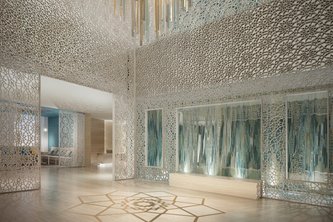
6. What can hotels do to attract Muslim customers? What are Muslim customers looking for?
Shaji: I think, in hotels, we look mainly into the four elements: First is definitely the Halal food. At Shaza Hotels we just cater halal food!
Second is the Halal environment itself - they’re not exposed to a bar or restaurant serving wine, because we’re specifically catering to the Muslim segment. At Shaza Hotels, we dont serve alcohol or provide bars.
Third, safety & security used to be a main concern for Muslim travellers because their families want to be in separate areas, or they want family corners, they don’t want to be exposed with cross genders etc. At Shaza, when we design a restaurant, we try to keep some provisions for that as well.
Fourth, facilities in terms of practising the faith. Nowadays you don’t need the Qibla direction or a copy of the Qur’an in each room – because it’s all in the apps. So, mainly we give them more privacy in leisure and hotel facilities, like private swimming pools, or swimming pool timings separate for ladies and gents, same thing with the gym, Prayer rooms etc. So this kind of works so that they can practise their faith and their culture.
7. What are the challenges of catering to both Halal and non-Halal markets?
Shaji: There is a general perception that Halal hotels just cater to Muslims only! You know if you take a city like London – and to my surprise, when I was doing my research for a project – there are a couple of dry hotels that run on the highest average rate; they don’t serve alcohol in London, and they’re not just catering to the typical Arab market – they have markets from the US and the local UK market itself. So I think it’s kind of a perception of it being difficult to operate outside GCC, still existing. We have a tough time teaching the OTAs and other travel agents to get them to say they’re Halal-friendly, or featuring “Halal-friendly” in their marketing. Lack of awareness and exposure to this market are our key challenges at the time being. Also the buy-in from reputed consultancies who guide the hospitality investors need to be raised as their perception influence a lot on the investment decisions in this sector.
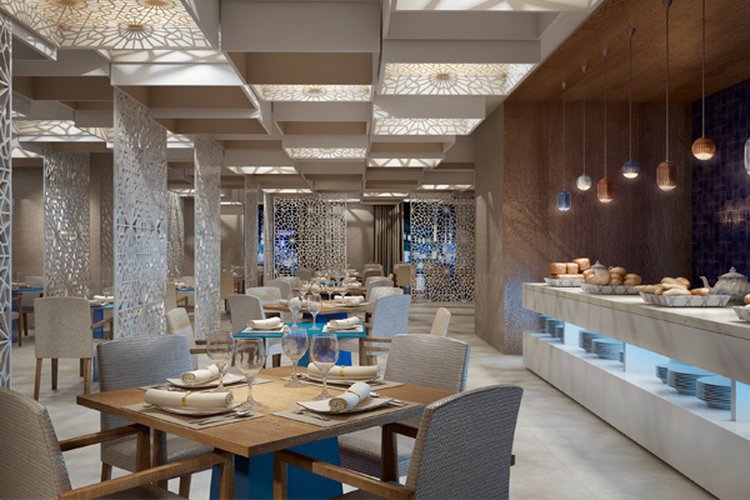
8. Could it be that it works only in London, so far?
Shaji: In our experience, Dubai is a city that has a lot of dry hotels catering Halal specifically, yet their biggest market of clients come from Germany, followed by the UK, and the GCC comes in at number three. Dry hotels are performing well in other markets too! We have examples from London, Kuala Lumpur, Istanbul, Oman etc where dry hotel competing and performing like any other normal hotels.
9. Is there anything we can do to remove the fear of catering to the Halal Travel Market?
Shaji: Education. Coming back to Europe, education is a must and we’re doing that. Also, the tour operators in destination marketing companies should take the lead in promoting Halal-Friendly services, because similar to airlines, they have Kosher food in their menu, just catering to 1% of the global population. Why? Because they’re pitching in that market as well! So, similarly, they should understand the importance of this market, the scope of this market, and cater to them.
10. As a hotelier, if we’re declaring hotels “halal”, do you think non-Muslims will be less willing to stay in your hotel?
Shaji: You see, it’s very simple, you’re giving one more option to a consumer: Halal-friendly Hotel means it’s kind of giving one more advantage to a specific segment to use your hotel, so you shouldn’t be shy; we’re openly saying it, and we found it’s a niche market among other markets, and other markets aren’t bothered, because like in Dubai, you have Germans, the UK and other markets coming to the same dry hotels. I don’t think it’s a problem for them.
11. You have a hotel coming up in London. How do you handle the Halal certifications?
Shaji: Shaza has a body of consultants working with us, because GCC is a given market, I mean you’re administering the certifications, but we have a body of consultants. We also partner with CrescentRating, and we have a lot of other partners who work with us, so definitely there’ll be a partner on board for that different market, but Shaza hotel as such, embodies the entire halal principle from the consumer’s point of view.
12. Shaji, what’s next for Shaza and Mysk Hotels?
Shaji: We have 15 hotels under construction for Shaza, and 5 under construction for Mysk. By 2020, our plan is to have 25 hotels all over the world, and with a further ambitious growth plan, we’re facilitating for both: the consumers, for a default Halal environment, and the investor, for Halal returns – because he invests in a Halal business, and he earns Halal. So, we are giving a valid proposition for both the B2C and B2B level. We get a lot of traction, we partner with most of the government organisations within the GCC, we work with Islamic banks because it’s an opportunity for them to invest in a Halal business. So, our plan is 100 Mysk hotels by 2030 and 50 Shaza hotels by 2030, that’s our roadmap for 2030.
13. What are the European destination plans for Shaza and Mysk?
Shaji: London, definitely! Geneva and other parts of Switzerland for sure. We are in active discussions with a couple of Istanbul properties. Paris, we want to enter. Nowadays, the diversified investment portfolio of those Middle Eastern banks help us to grow to these markets as well. We recently signed a big project in Lombok, Bali, so that’ll be the first Halal-friendly Resort in Bali. We’re also planning to develop towards those Far East and CIS countries like Malaysia, Indonesia, Kazakhstan, Azerbaijan, because Shaza stans celebrate the cultures of the silk route, so I think that is our catchment area when we are developing further.
14. Shaji, not from a hotelier’s angle, what’s your general message to the audience about Halal tourism, what should they do? Should they take it seriously, and how seriously?
Shaji: Definitely serious! We saw all the figures at the beginning. I mean, the figures speak out, we don’t need to speak anything, just the figures speak! There’s a huge potential out there, it’s the time to be there and to say that “we’re Halal friendly” if they want to go and tap into that market, and if they do it, and do it right, with the help of the right consultants, the right people - because trust is also a very important part of a business - You would definitely get a stake out of this growing market.